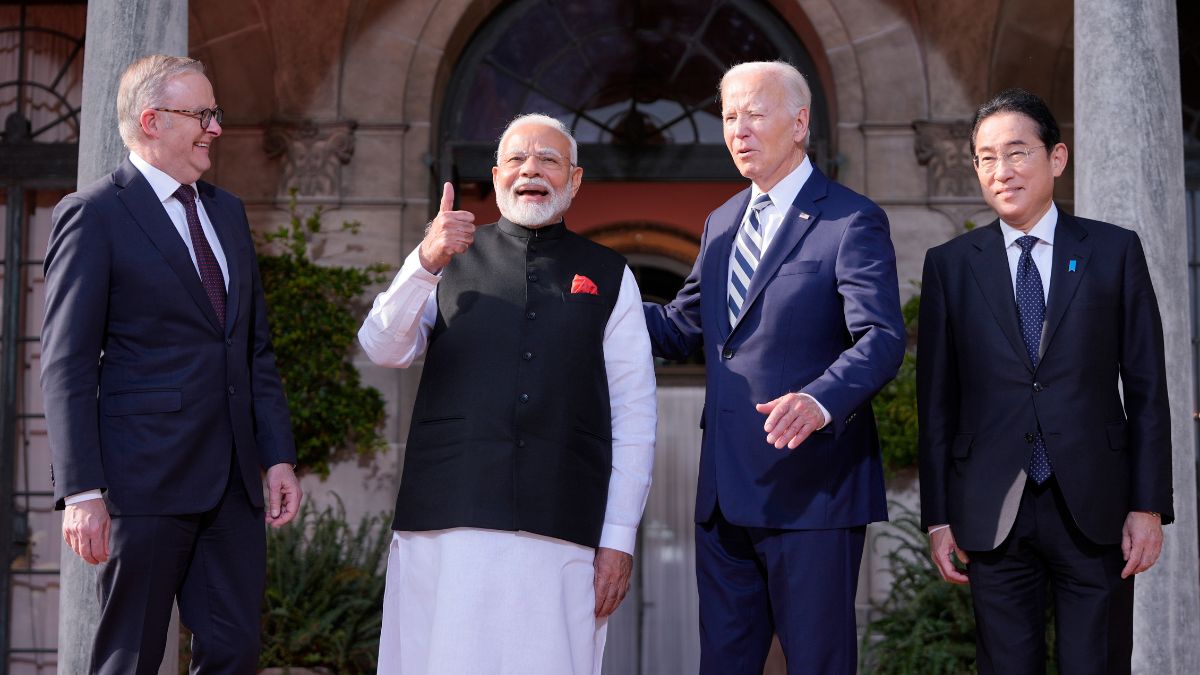) |
|
The Quadrilateral Security Dialogue (Quad), an alliance comprising the United States, India, Japan, and Australia, has taken a firm stance against China's assertive military posture in the Indo-Pacific region. At the fourth in-person summit held in Delaware, the leaders condemned any actions that aim to destabilize the region or alter the status quo through force or coercion.
Recognizing the growing military presence of China, President Joe Biden highlighted Beijing's strategic maneuver to test the region's resilience. However, he emphasized that the administration perceives these actions as a tactical shift rather than a fundamental change in strategy. The Quad leaders unveiled a comprehensive strategy to enhance maritime security cooperation in the Indo-Pacific, encompassing joint coast guard operations, training initiatives, and data sharing platforms.
A key outcome of the summit was the launch of a first-ever "Quad-at-Sea" ship observer mission scheduled for 2025. This mission is designed to promote maritime safety and security across the Indo-Pacific region. Additionally, the leaders announced the establishment of the Regional Maritime Initiative for Training in the Indo-Pacific (MAITRI), aimed at empowering partner countries to maximize the utilization of tools provided through the Indo-Pacific Maritime Domain Awareness (IPMDA) initiative.
The IPMDA, launched in May 2022, facilitates comprehensive monitoring of coastal waters for partner countries, contributing to regional peace and stability. By leveraging data from the IPMDA, nations can combat illicit maritime activities, respond to climate-related events, and address humanitarian emergencies. Furthermore, the Quad leaders announced the pilot project for a Quad Indo-Pacific Logistics Network, seeking to enhance shared airlift capabilities among the nations.
Addressing the ongoing war in Ukraine, the Quad leaders expressed profound concern over the conflict's devastating humanitarian consequences. They reiterated the imperative of achieving a comprehensive, just, and lasting peace that adheres to international law and upholds the principles of the UN Charter, including respect for sovereignty and territorial integrity. They also condemned the use or threat of nuclear weapons and underscored the importance of upholding international law.
The leaders condemned the October 7 terrorist attacks by Hamas on Israel, highlighting the unacceptable loss of civilian lives and the humanitarian crisis in Gaza. They emphasized the need to secure the release of all hostages held by Hamas, stressing that this action would facilitate an immediate and prolonged ceasefire. The leaders also called for increased delivery of humanitarian aid to Gaza and urged all parties to comply with international law.
In conclusion, the Quad summit showcased the alliance's united stance on regional security and cooperation. By introducing new security measures, enhancing maritime collaboration, and addressing global crises, the Quad demonstrates its commitment to upholding a rules-based international order, promoting peace and stability, and safeguarding the interests of its members and the wider Indo-Pacific region.
Source: Quad introduces new security measures over China’s military posturing in Indo-Pacific
